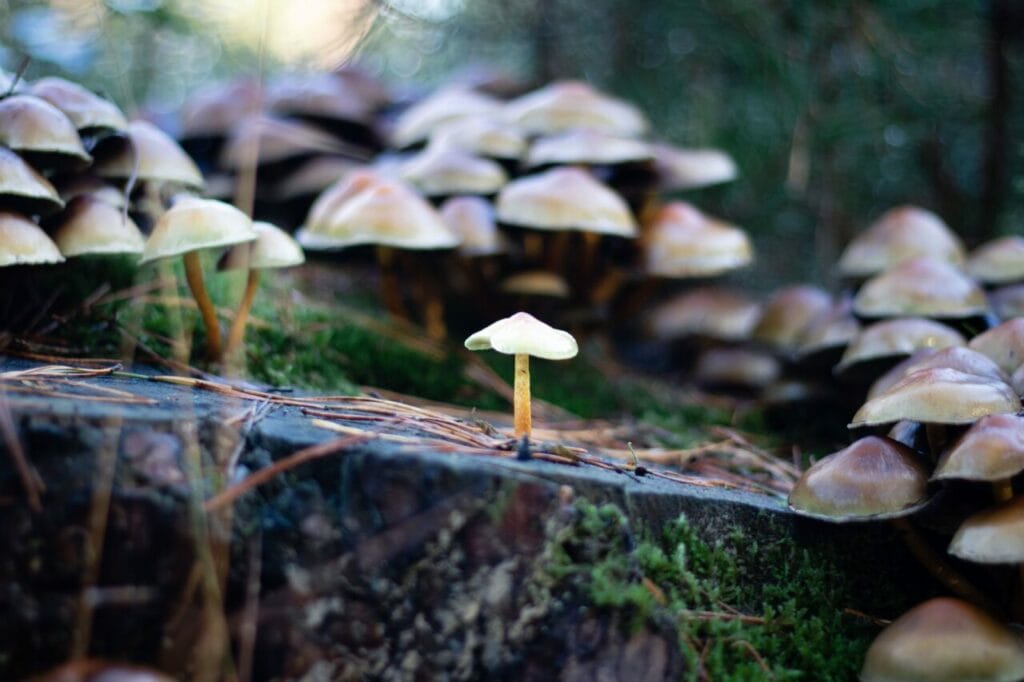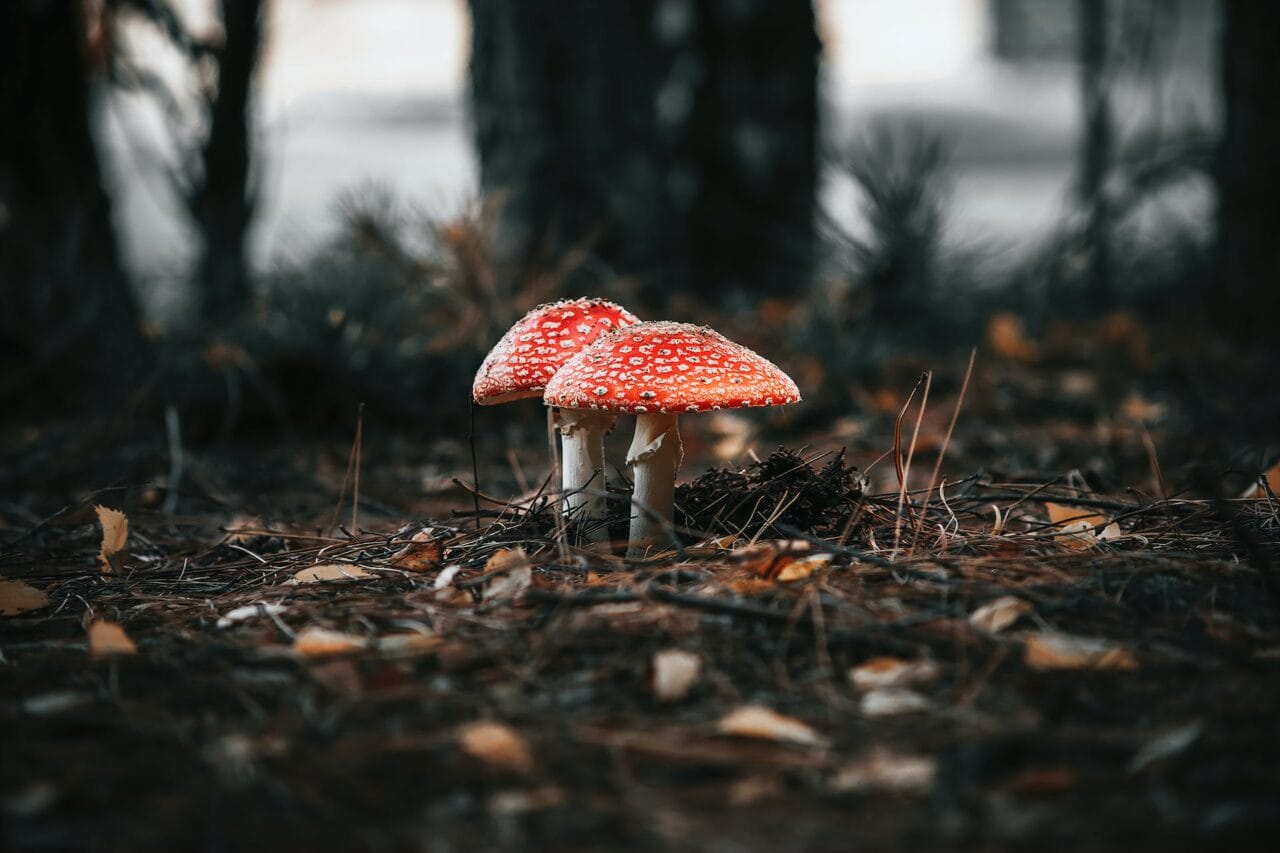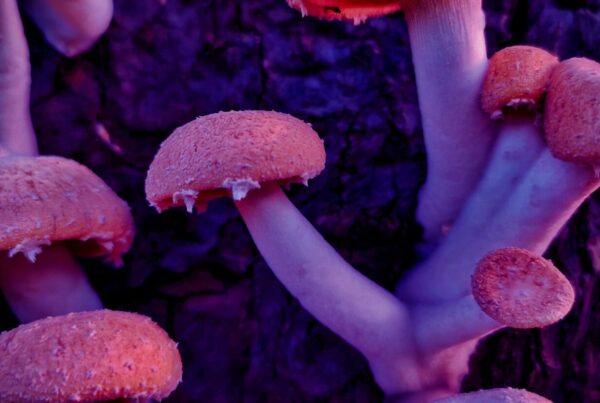Interest in psilocybin is skyrocketing, driven by studies into its potential benefits for mental health problems such as anxiety and addiction. Despite the heightened curiosity, obtaining psilocybin remains a challenge. Laboratories and shroom delivery services providing magic mushrooms are scarce, and the cost tends to be high.
This article will delve into the evolution of psilocybin, its current status, and the potential advantages it may bring to those seeking help.
[toc]Key Points:
- Considerable effort and careful monitoring are needed to avoid contamination during the mushroom cultivation and inoculation process.
- Psilocybin creates a psychedelic experience by interacting with several brain areas, particularly the serotonin receptors.
- Psilocybin slightly increases the heart rate, which normalizes soon after ingestion, and generally does not lead to other negative effects.

Ensuring Top-Quality Magic Mushrooms Production
Magic mushrooms naturally grow in diverse environments such as manure-rich pastures, leafy temperate forests, grasslands, and woods. Over centuries, people have ventured into these areas to collect these fungi for medicinal purposes or to use them in spiritual and religious ceremonies.
Traditional Method
Today, the ancient practice of foraging for mushrooms in these natural habitats is less common. This shift may be due to the rise of alternative methods like cultivation or the possibility to buy magic mushrooms online.
Wild mushrooms are generally less potent than those grown in labs, which are meticulously nurtured under controlled circumstances. Moreover, there’s a risk of accidentally picking a poisonous species when foraging in the wild.
Modern Method
The shroom production process commences with a complex procedure that involves fostering spores to maturity. This process requires a
Great care and precision are required to avoid any potential contamination during the inoculation phase. Once the mushrooms are ripe for harvest, they are typically dried by laboratories or cultivators to prolong their shelf life. Fresh mushrooms have a lifespan of only a few days, whereas dried mushrooms can be stored for several months or even up to a year.
Manufacturers transform dried mushrooms into an array of forms including microdose capsules, edibles, tinctures, and beverages. These are distributed across Canada through magic mushroom delivery services.
Harnessing the Potential of Psilocybe Cubensis or Magic Mushrooms
Researchers conduct clinical trials on mushrooms to understand their influence on mental health and mood disorders, relying on anecdotal evidence. Investigations range from microdosing with capsules to experiencing a mushroom trip by consuming dried mushrooms or chocolate edibles.
Once consumed, psilocybin is transformed into psilocin. This compound behaves similarly to serotonin, a neurotransmitter essential for mood regulation. It engages with various areas of the brain, particularly the serotonin receptors, to initiate a psychedelic journey.
People who undergo psilocybin therapy frequently report significant alterations beyond merely heightened senses and visual changes. These experiences often lead to a substantial shift in self-perception and a transformative change in personal perspective, typically marked by profound insights.
Depression and Suicidal Thoughts
A study published in the Journal of Psychopharmacology explored the effects of a psychedelic experience on individuals dealing with depression and suicidal thoughts. Most participants deemed their psilocybin experience as highly significant and highlighted its potential influence on their lives. Such levels of satisfaction could enhance the effectiveness of therapy, given the crucial role of patient engagement in mental health interventions.
Safety Assessment
Researchers not only study the impact of psilocybin on depression and anxiety but also assess its safety. A study in JAMA Psychiatry indicated that participants given psilocybin experienced a slight rise in heart rate and blood pressure two hours after ingestion. However, further analysis using Holter monitoring revealed no significant increase in the risk of cardiac arrhythmias in the psilocybin group compared to the niacin group. The study also discovered
Users do not experience any significant psychological distress.





